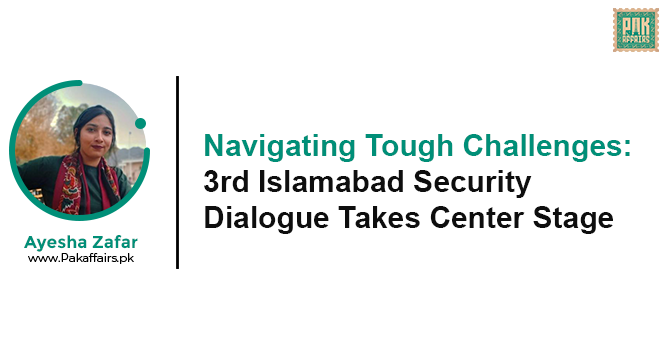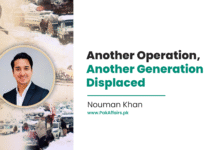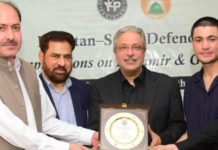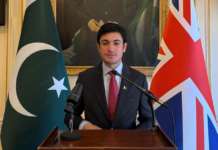The 3rd edition of the Islamabad Security Dialogue will be held on 10-11 May 2023 under the auspices of the National Security Division of Pakistan. The co-hosts of the event are 5 prominent National think tanks of Pakistan named: the Institute of Regional Studies, Islamabad (IRS); Institute of Strategic Studies, Islamabad (ISSI); Institute for Strategic Studies, Research & Analysis (ISSRA, NDU); Islamabad Policy Research Institute (IPRI); and Centre for Aerospace and Security Studies (CASS). Consisting of 7 sessions, the two-day event is themed “Beyond Conflict? Resetting the Global Agenda in a Divided World.” By examining the contours of Pakistan’s National Security Policy and the unprecedented Great Power competition, the event objects to underscore the traditional and non-traditional security challenges, understand the complex evolving world order and generate ideas to shape Pakistan’s policy behavior in accordance with the domestic and system-level variables.
Combined by dialogue, the experts and representatives from civil society, academia, the diplomatic corps, the federal cabinet, media, law, and the global research community will be discussing a variety of insistent security challenges in hybrid sessions titled, “Commanders’ Forum: Changing Nature of War”, “Economic Statecraft: Cooperation in an Era of Uncertainty”, “Climate: An Existential Threat”, “National Security Advisers Forum: Conversation about Afghanistan”, “Challenges to International Law and Rules-Based Order in the Era of Great Power Competition”, “A Transitioning Global Order; From Competition to Conflict?”, and “Economic Reforms in Pakistan.”
The dialogue is arriving at an appropriate time when it is most required to build consensus among the different circles to bring policy ideas for Pakistan at Nadir. The melancholy of political instability doesn’t seem to attenuate until the elections, and so is the socioeconomic unrest. Therefore, the dialogue, by combing all relevant stakeholders, would play a consequential role in developing an understanding of the complex evolving social issues, dynamics of the economy, and vulnerabilities of climate change and technology while tracking and analyzing the direction of Pakistan in changing geopolitics of the world, where the parliament is too distraught to analyze such issues. With that, the event will also underscore and scrutinize the shifts in the international political environment by analyzing the threats being posed to the current world order, in order to learn about deriving the optimum behavior Pakistan can adopt in future episodes of geopolitics. Additionally, engagement of the international community with Pakistani academia and policy expert will bring technical expertise and credibility to Pakistan’s democratic efforts for its ailing national security.
However, it is noteworthy that while the agenda of the national dialogue covers a diverse range of national security issues, there are several other critical issues that needed greater or proper representation in the agenda. Prominently, the theatre of violence in the country over the last year has been controlled by terrorism in the country with the second-largest surge in terrorism-related fatalities in the year 2022, yet there is no allocated session to the debate of terrorism swell and associated social and economic costs to the country. Secondly, with the global society, Pakistan has also entered into a post-truth world, where useless rhetorics and social media are active in spreading disinformation among the masses. Disinformation in the country is aggressively fostering extremism, and mistrust among people while undermining the democratic institutions and social cohesion posing a fat threat to the national security of Pakistan, yet we do not see it as an important issue to debate in the annual national security dialogue. Furthermore, the topic of Kashmir, which appears to have already died in parliament and policy circles and is only contested in research circles, does not appear to have much weightage in the national dialogue. With that, another critical non-material national security issue in Pakistan is the identity crisis which the nation must be heedful for national character building, therefore, the challenge must be debated in policy circles and academia.
Nevertheless, the iterations of the annual national security dialogues are critical catalysts for strengthening the democratic spirit of the country and shaping the country’s pragmatic policy outlook and behavior in light of the shifting dynamics of the global security environment. The changing power dynamics in the globe have provided Pakistan with a chance to re-identify and reinvent its place in global politics and the global economy; the dialogue will provide a forum to examine Pakistan’s alternatives and prospects as power dynamics evolve.




